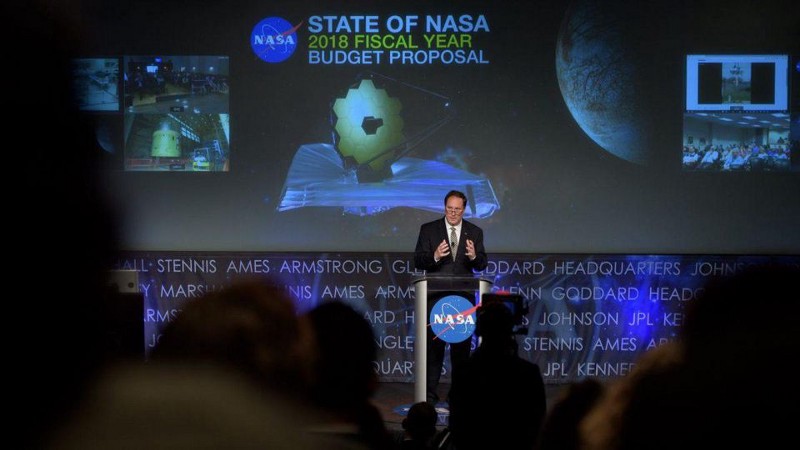This week’s question arrives via Big Think producer Elizabeth — What’s Bill Nye frightened of? In two words: climate change.
Bill considers its potential consequences a major cause for concern. He also feels a whole lot of frustration watching American leaders dawdle rather than commit to taking action to prevent (or at least prepare for) its effects. This is why his work as CEO of the Planetary Society is so rewarding. At the Planetary Society, he can help support efforts such as the Europa mission so we humans can find a place to live after we mess this rock up so much it becomes uninhabitable.
Until then, climate change will remain the thing that keeps Bill Nye up at night.
Elizabeth Rodd: Hi Bill! So you know me as a producer at Big Think and my question for you is my favorite question for all of our guests, which is, “What keeps you up at night?”
Bill Nye: What keeps me up at night? Climate change. Climate change keeps me up at night. Everywhere I look there are opportunities to be addressing climate change and everywhere I look we are not doing it. And by we, I mean not just humankind writ large, but my United States where I grew up, where I went to engineering school, where I worked as an engineer trying to make the world better for somebody. And we are missing all these opportunities. It’s just crazy-making. And this is, by the way, why I’m very proud to be the CEO of the Planetary Society. We are accomplishing something in space. We are getting things done in space and I claim that space exploration is good for everybody. So it’s not the Apollo era. We are not devoting 10 percent of the world’s largest government funding to this one thing. We’re spending about 0.4 percent. It would be nice if it were 0.5 percent, but we’re spending a reasonable amount of our intellect and treasure on learning about the cosmos. And the Planetary Society works very hard to direct that expenditure in what we think is the best, most efficient way. Today, by the way, right now is the press conference about what instruments will be put on the Europa mission. This is a spacecraft going to the moon of Jupiter called Europa looking to see if it’s habitable. Is there a chance there are living things there? Such a discovery would change the world. With that said, climate change keeps me up at night. The opportunities that we’re missing is just crazy-making.
These people who are in denial of climate change. If you’re a denialist and this will probably find its way to you and you will post these crazy, mean-spirited comments about me and knock yourself out. It’s fine. If that brings you joy, okay. But if somebody told you that there is no connection whatsoever between smoking and cancer, would you vote for that person? Would that be somebody you’d trust now? Fifty years after that discovery was made? Well, the connection between humans and climate change is about that strong and, by some very reasonable modern statistical reckoning, slightly stronger. So if you’re a denier out there I strongly encourage you to cut it out. Just change. Just get to work. There’s nobody more passionate about the environment than the guy who just built his log cabin. There’s nobody who wants you to quit smoking more strongly than the guy who just quit or the gal who just quit. There’s no more antismoking advocate stronger than the person who just quit smoking. So if you’re a denier out there you could change and we’d embrace you. And we can get to work. And the opportunities are renewable energy, transmission of electricity — electricity’s like magical energy. Electricity storage or energy storage. And then if, that’s from an engineering standpoint. And then the huge opportunity is to create a system where people have to pay for the carbon dioxide they create. And then take those funds, that treasure, and redirect it into basic research so that we can, dare I say it, change the world. And then I could sleep at night.






